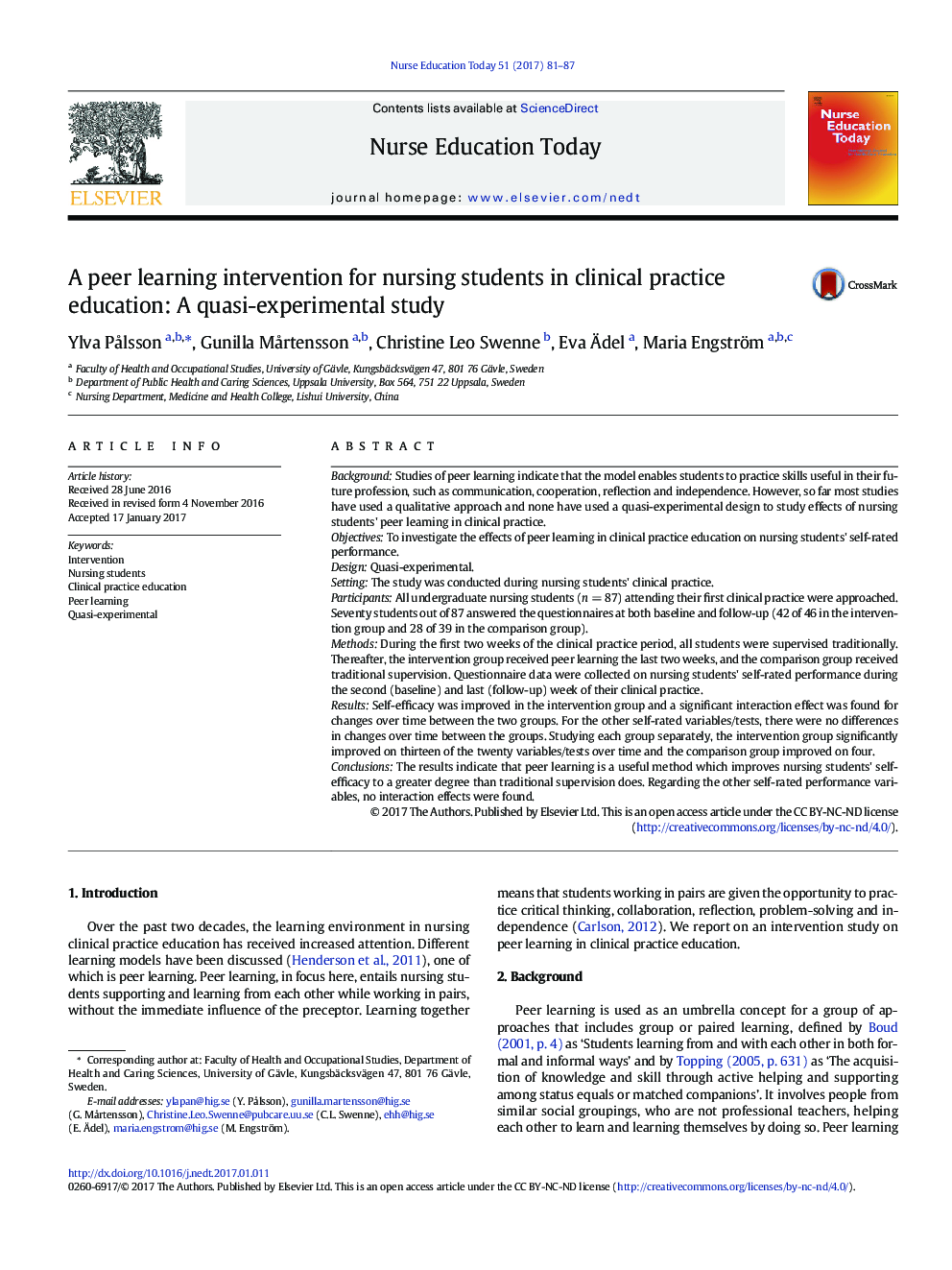| کد مقاله | کد نشریه | سال انتشار | مقاله انگلیسی | نسخه تمام متن |
|---|---|---|---|---|
| 4940702 | 1436542 | 2017 | 7 صفحه PDF | دانلود رایگان |
- Nursing students using peer learning in their clinical practice education seem to gain improved self-efficacy.
- The results indicate that peer learning improves students' self-efficacy to a greater degree than traditional supervision.
- If future research supports the present findings, peer learning may be a useful model to establish in clinical education.
BackgroundStudies of peer learning indicate that the model enables students to practice skills useful in their future profession, such as communication, cooperation, reflection and independence. However, so far most studies have used a qualitative approach and none have used a quasi-experimental design to study effects of nursing students' peer learning in clinical practice.ObjectivesTo investigate the effects of peer learning in clinical practice education on nursing students' self-rated performance.DesignQuasi-experimental.SettingThe study was conducted during nursing students' clinical practice.ParticipantsAll undergraduate nursing students (n = 87) attending their first clinical practice were approached. Seventy students out of 87 answered the questionnaires at both baseline and follow-up (42 of 46 in the intervention group and 28 of 39 in the comparison group).MethodsDuring the first two weeks of the clinical practice period, all students were supervised traditionally. Thereafter, the intervention group received peer learning the last two weeks, and the comparison group received traditional supervision. Questionnaire data were collected on nursing students' self-rated performance during the second (baseline) and last (follow-up) week of their clinical practice.ResultsSelf-efficacy was improved in the intervention group and a significant interaction effect was found for changes over time between the two groups. For the other self-rated variables/tests, there were no differences in changes over time between the groups. Studying each group separately, the intervention group significantly improved on thirteen of the twenty variables/tests over time and the comparison group improved on four.ConclusionsThe results indicate that peer learning is a useful method which improves nursing students' self-efficacy to a greater degree than traditional supervision does. Regarding the other self-rated performance variables, no interaction effects were found.
Journal: Nurse Education Today - Volume 51, April 2017, Pages 81-87
